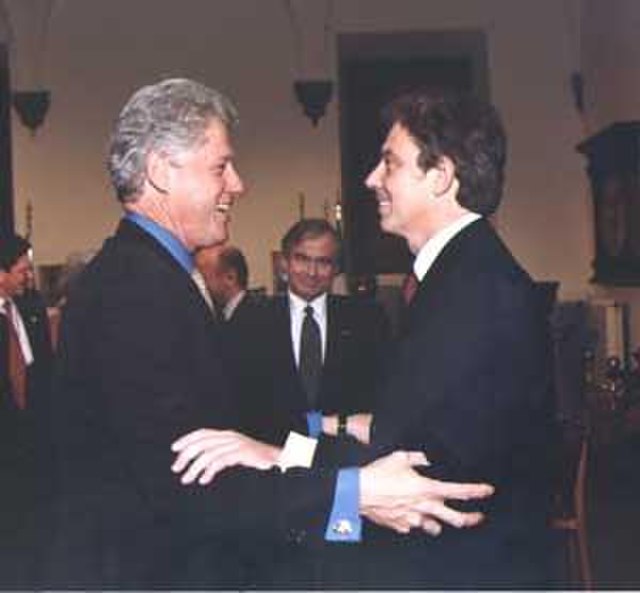Modern liberalism in the United States
Modern liberalism in the United States is based on the combined ideas of civil liberty and equality with support for social justice. It is one of two major political ideologies of the United States. Economically, modern liberalism supports government regulation on private industry, opposes corporate monopolies, and supports labor rights. Its fiscal policy opposes any reduction in spending on the social safety net, while simultaneously promoting income-proportional tax reform policies to reduce deficits. It calls for active government involvement in other social and economic matters such as: reducing economic inequality, increasing diversity, expanding access to education and healthcare, regulating economic activity, and environmentalism. Modern liberalism is a large and mainstream ideology in the Democratic Party and nation. Modern liberalism was formed in the 20th century in response to the Great Depression. Major examples of modern liberal policy programs include the New Deal, the Fair Deal, the New Frontier, the Great Society, the Affordable Care Act, and the Infrastructure Investment and Jobs Act.

Bill Clinton and Tony Blair, adherents of the Third Way
Political ideologies in the United States
American political ideologies conventionally align with the left–right political spectrum, with most Americans identifying as conservative, liberal, or moderate. Contemporary American conservatism includes social conservatism and fiscal conservatism. The former ideology developed as a response to communism and the civil rights movement, while the latter developed as a response to the New Deal. Contemporary American liberalism includes social liberalism and progressivism, developing during the Progressive Era and the Great Depression. Besides conservatism and liberalism, the United States has a notable libertarian movement, developing during the mid-20th century as a revival of classical liberalism. Historical political movements in the United States have been shaped by ideologies as varied as republicanism, populism, separatism, fascism, socialism, monarchism, and nationalism.
"Join, or Die" (1754). This political cartoon by Benjamin Franklin advocated unity of the Thirteen Colonies.
Depiction of William Jennings Bryan after giving the Cross of Gold speech in 1896 (William Robinson Leigh, 1900)
President Roosevelt signing the Social Security Act in 1935
Martin Luther King Jr. at the March on Washington for Jobs and Freedom in 1963





